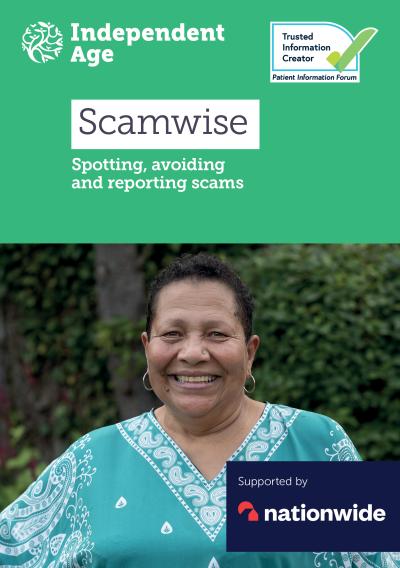Related publications

Scams are becoming more complicated and many people fall victim to them. This can be very upsetting, but you don’t have to feel embarrassed or ashamed. You have been the victim of a crime. It’s important to report it and get the help you need.
If a crime is in progress, or you or someone else is in immediate danger, this is an emergency. Call the police on 999.
If you have been scammed, make sure you report it. You may not always be able to get your money back, but you might be able to take steps to stop it happening again – to you or other people.
If you live in England or Wales, scams should be reported to Action Fraud, the national fraud and cybercrime reporting centre (0300 123 2040). If you live in Scotland, report any scams to Police Scotland (101).
You can also report phishing scams or computer viruses that you’ve been sent but haven’t fallen victim to. Phishing is when scammers send fake messages by text, email or social media to get your personal information. They might ask for your bank details or passwords or promise rewards for an upfront fee.
Some scams can also be reported to Trading Standards using the Citizens Advice consumer helpline (0808 223 1133). Trading Standards looks at cases where companies have acted illegally or unfairly – if they’ve pressured you into buying something you didn’t want or haven’t carried out work on your home properly, for example.
If you've been scammed, it can be extremely stressful. Support is available if you need it. Victim Support is an independent charity that supports victims of crime or traumatic events. When you report a scam to Action Fraud, they will ask if they can pass your details to Victim Support. Victim Support will then contact you to offer free, emotional and practical support. If you live in England or Wales, you can contact Victim Support directly (0808 168 9111). If you live in Scotland, contact Victim Support Scotland (0800 160 1985).
You may also find it helpful to talk to family and friends, or you can call Samaritans for confidential emotional support on 116 123.
Take a look at our information on spotting and avoiding scams for some simple tips on keeping your money and personal details secure.
Scammers sometimes target people they know have already lost money to scams. They might claim to be a company that can help to get your money back, but then ask you to pay for their help. Genuine law enforcement agencies will never ask for you to pay them to get back the money you have lost.
Friends Against Scams train people to protect themselves and others against scams. If you want to help or learn, you can sign up online as one of their Scam Marshals.
You won’t always be able to get your money back if you’ve been scammed. You might have more protection if you've paid for something with a credit card. Contact your bank as soon as possible if you know that you’ve been tricked into revealing personal information or banking details. Also contact your bank if you notice activity on your account that you don’t recognise.
MoneyHelper has more advice on getting your money back if you've been the victim of a scam or identity theft.
You can read more about different types of scams and how to protect yourself in the Metropolitan Police guide The Little Book of Big Scams.
By calling Independent Age's free and impartial Helpline, you can get information and advice from one of our friendly advisers, or order our free guides.